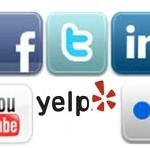
Social media has become a powerful marketing tool.
So you think you’re ready to take the plunge. No, not marriage, kids or swimming with those Polar Bear guys. We’re talking about social media here. Like those other plunges, you might not quite be sure what you’re getting yourself into.
There’s no denying it: Social media has become a powerful marketing tool. Whether your business is B2C or B2B, if you have strong products and services, social media is right for you. An abundance of companies, both national (ING DIRECT, Zappos, Red Bull) and local (Grotto Pizza, The Bee Hive, Delaware Sports League), have become proficient in connecting with their customers and communities through these sites. And if you look at these organizations’ platforms, you’ll notice common themes. They’re engaging, responsive, and they avoid aggressive selling tactics. More important, these companies embrace social media as a two-way dialogue in which customers have equal say, whether comments are positive, negative or neutral.
As a small-business owner, you already know about the importance of word-of-mouth references. Well, social media can act as a word-of-mouth amplifier—if you pick the right platform. You probably have a bevy of questions about launching your platform, but let’s focus on four of the most important.
With so many social media sites, where do I start?
There are hundreds of sites to choose from, and each one has unique styles and strengths. Let’s narrow your selection down to the three of the most important social media sites for small businesses: Facebook, Twitter and Yelp. While other sites also have merit, these three are ideal because of their large number of users and value to small businesses. You don’t have to jump into all three at once, but, after doing your homework, you should at least try one on for size.
Facebook is a lot more than pictures of babies, pets and parties. Facebook is a community and your business must earn its way in. Avoid blatant self-promotion; instead, provide attractive content. Figure out what interests your customers. The “Timeline” is the most important feature of Facebook, because visitors spend the majority of their time on it. Think of Timeline as a sort of social media umbrella. While another social network may lend itself to only a certain type of post, Facebook can handle almost anything. Businesses can post messages, updates and photos (oh, how people love photos), and share content. And you might be surprised who is on Facebook. Don’t assume your 55-and-older community has no need for a platform. Finally, make sure to set up your business as a page, not a person. Start here: http://www.facebook.com/pages/create.php.
Like Facebook, Twitter requires your business to take part in a conversation—no hard sell or proclamations of greatness, please. If Facebook is a community, Twitter is a news-sharing platform. Provide content your customers will want to share, whether it’s new product or menu information, developing projects, behind-the-scenes glimpses, or links to articles about your industry. Some businesses even use Twitter to field customer service inquiries, and very successfully. Don’t forget to “tweet” on the weekend, especially if customers frequent your business on their off days. Start here: https://business.twitter.com/.
Yelp invites customers to review local businesses. You may know the site for restaurant and shopping reviews, but Yelp rates everything from nightclubs to spas to professional services. Industry expert Todd Wasserman believes Yelp, next to Google, is the most important site for small businesses. Provide an accurate description of your business by creating a Yelp profile. Even if people are already commenting on your business, Yelp allows you to “claim” and edit your profile. Until recently, companies could only offer daily deal promotions, but, as of September 12, businesses can also sell gift certificates directly from their profile page. With more than 78 million visitors last quarter alone, Yelp is worth your time. Start here: https://biz.yelp.com/support.
For a small business, these Facebook, Twitter and Yelp sites are the best place to start, especially if you are new to social media. This doesn’t mean other sites won’t also add value to your business. When you’re ready, take a look at Pinterest, YouTube, LinkedIn and Foursquare.
LOOK FOR PART II OF SOCIAL MEDIA FOR SMALL BUSINESS NEXT WEEK.

